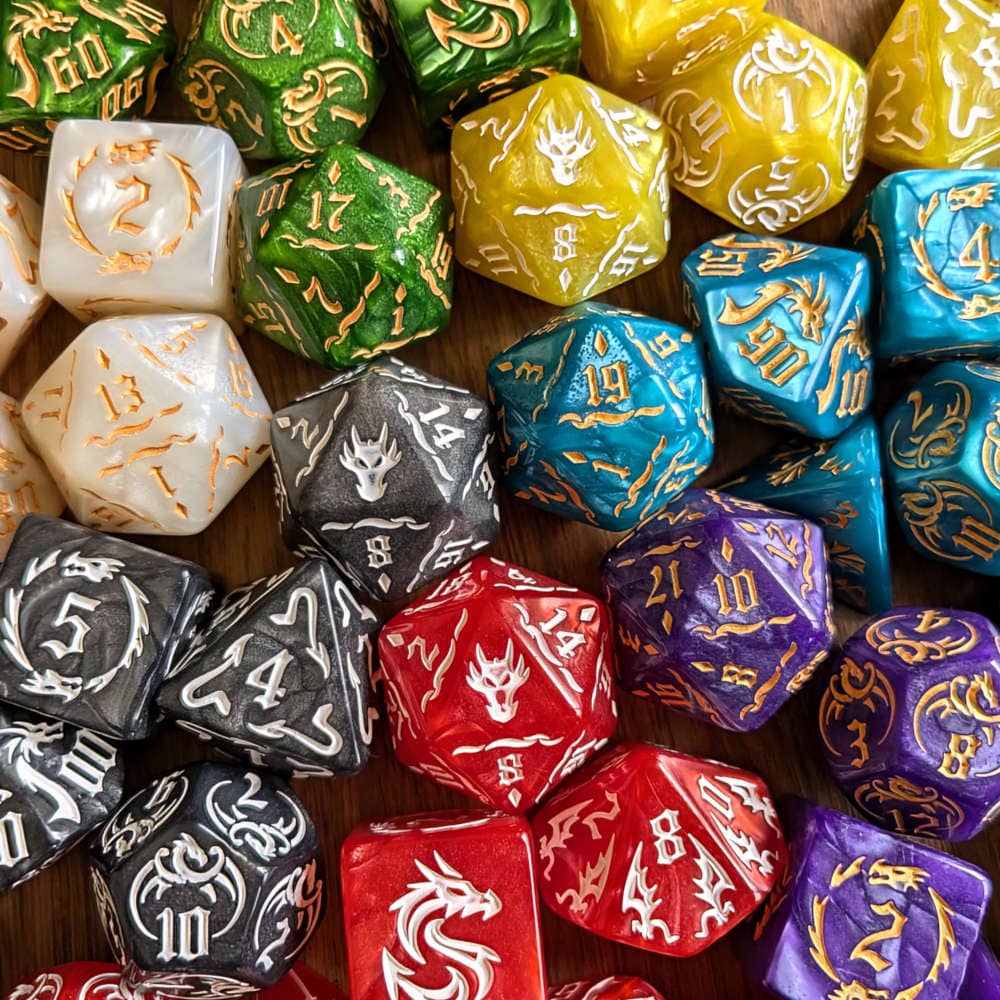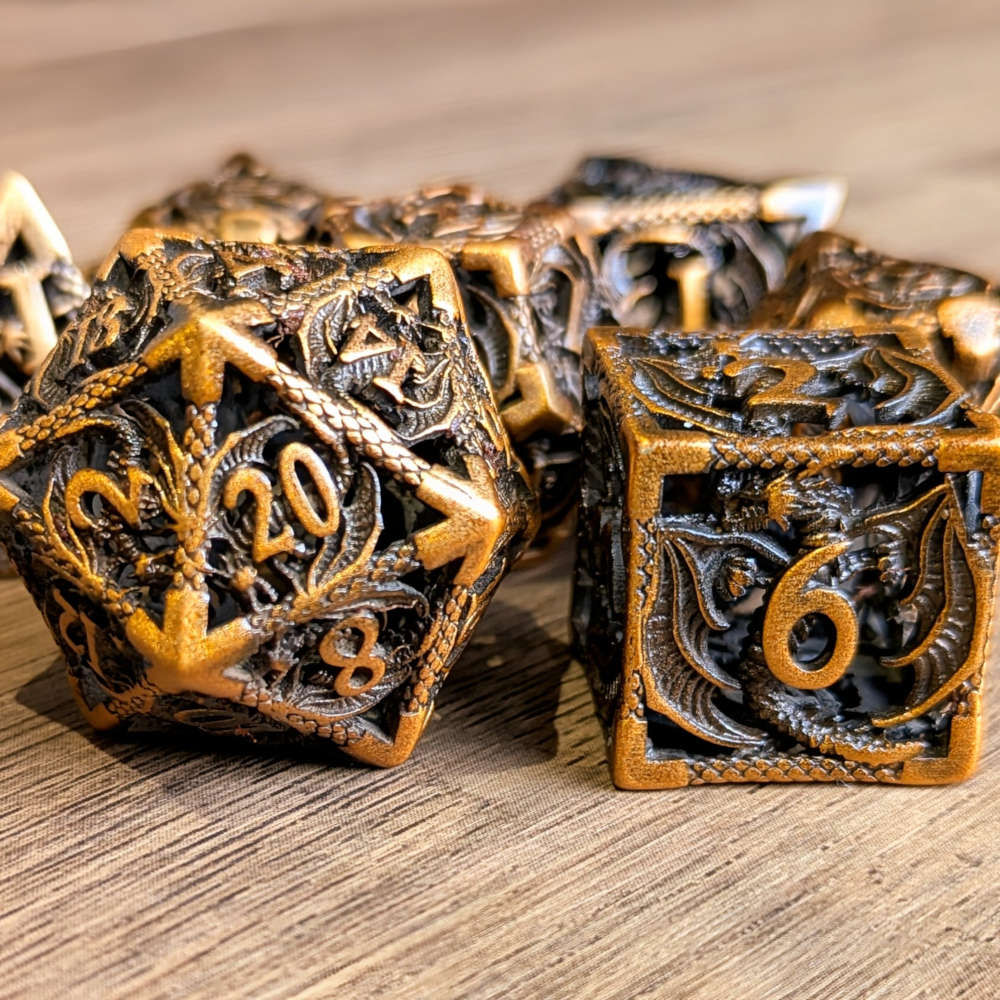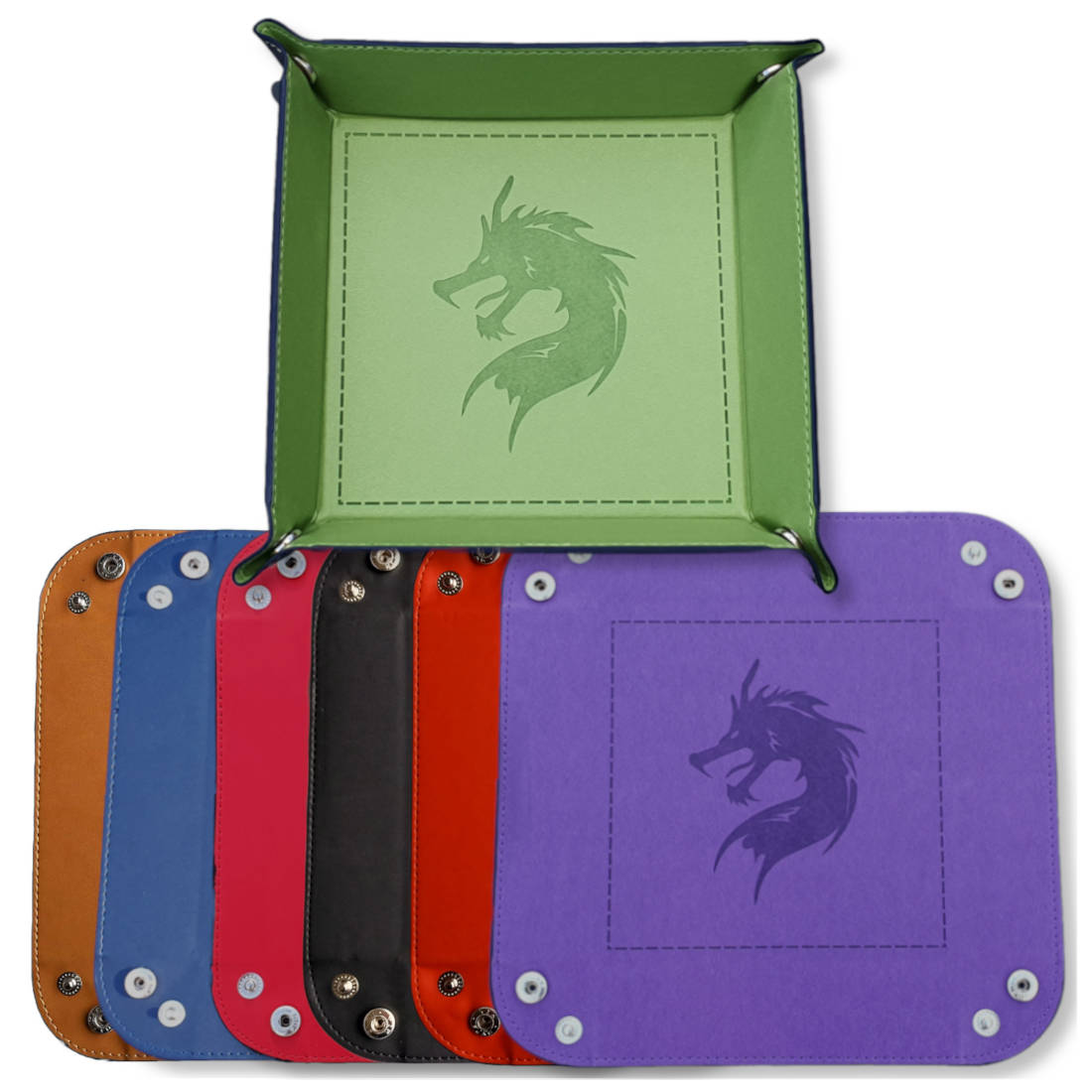How to make a unique D&D character

Embarking on a new campaign is a fun time, and creating a unique character is one way of immersing yourself in a fantasy world. Creating a unique D&D character goes beyond simply picking a class; it involves delving into your character's backstory, personality traits, motivations, and quirks to bring depth and richness to their identity.
In this guide, we'll explore the art of character creation, providing valuable tips to help you craft a one-of-a-kind character that you can enjoy on countless quests to come.
What makes a fun character in D&D?
Creating a fun character in D&D involves several key elements. Make sure you speak with your Dungeon Master (DM) and use a session zero checklist to weave your character into the campaign.
Some of the key aspects that help make a fun D&D character include:
- Tie your character's background to the world and the overarching story of the campaign
- Make short-term and long-term goals that provide motivation for their adventuring journey
- Leave room for personal development and evolution throughout the campaign
- Try quirks and mannerisms to set your character apart and make them feel distinct
- Align your character with your preferences, the party dynamics, and the tone of the game
- Make decisions based on your character’s personality and motivations
- Find a way to act in-character that you’re comfortable with, like using a voice or descriptions
Check out our guide for more tips on being a better D&D player.
Tips to making a unique D&D character
- Build your character around your campaign: consider the setting, tone, and central story of the campaign. Tailor your character's background, motivations, and abilities to align with the overarching theme, ensuring they have a vested interest in the adventure's outcome.
- Make a character that complements the group: consider the party dynamic and composition when designing your character. Try to complement the group both narratively and mechanically. This will contribute to your party's cohesion and effectiveness.
- Craft a backstory with depth but keep it concise: while it's tempting to write a lengthy backstory, focus on key events and experiences that shaped your character. Highlight significant moments while allowing room for growth and exploration during gameplay.
- Explore flaws, ideals, and virtues: define your character's flaws, ideals, and virtues, as these aspects shape their behaviour and decision-making. Embrace imperfections and conflicting beliefs, as they add complexity and authenticity to your character's personality.
- Consider their family and previous life: explore your character's familial background and upbringing, considering how these factors have influenced their values, goals, and worldview. Outline their relationships with family members and other important NPCs.
- Give them friends outside of the party: develop connections beyond the adventuring party by introducing friends, allies, or rivals from your character's past. NPCs can offer additional depth to your character and provide opportunities for roleplay and development.
- Come up with a secret: consider introducing a secret or hidden aspect of your character's past or identity. This secret could drive character development and plot twists, revealing new layers of complexity over the course of the campaign.
- Think about how they came into their class: reflect on the circumstances that led your character to pursue their chosen class. Consider their training, mentors, or personal experiences that shaped their skills and abilities.
- Decide their religious beliefs (if any): consider your character's spiritual beliefs and affiliations, exploring how religion shapes their worldview and moral code. Whether devoutly religious or sceptical, their faith; or lack thereof; can influence their actions.
- Weave your character into the world: create connections to the campaign setting by integrating your character's backstory with the world's lore. Collaborate with your Dungeon Master to establish ties to prominent NPCs, factions, or locations. This will ground your character in the world and make them feel more unique.
- Figure out what motivates them: identify your character's motivations and aspirations, such as seeking revenge, pursuing wealth, or seeking redemption. Understanding their driving force can inform their decisions and goals throughout the campaign.
- Think in-character and act accordingly: embrace your character's personality, motivations, and beliefs during gameplay. Make decisions based on their perspective and goals, fostering roleplay opportunities and enriching the storytelling experience for your table.
- Leave some blank space: allow room for character development and growth by leaving certain aspects of your character's backstory open-ended. Embrace the opportunity to explore their past, relationships, and motivations during gameplay.
- Think about what your character is going to do next: anticipate your character's future actions and decisions, considering how they will respond to upcoming challenges and opportunities. Maintain consistency with their established traits and motivations while adapting to new developments in the campaign.
How do you create a unique character backstory?
To craft a unique character backstory, delve into defining moments that propelled your character into adventuring. Consider significant NPCs like family, friends, or mentors who shaped your character's journey, and make sure to share them with your Dungeon Master for potential campaign integration.
You could also use resources like Xanathar's Guide to Everything, which has a section on creating character stories. for additional guidance.
Do I have to do a voice to make a unique character?
While adopting a character voice can help making your roleplay better, it's not a requirement for making a unique character. Instead, consider your character's mannerisms, speech patterns, and actions to bring them to life. Whether they speak quickly, use specific vocabulary, or have distinctive gestures, these traits can make your character memorable without the need for a unique voice.
If you’re anxious about trying a voice, or about playing as a whole, our guide to playing D&D with anxiety has plenty of tips to manage anxiety before, during, and after game time.
Examples of unique D&D characters
Sometimes, things are easier when shown in an example. Let’s walk through two of our own characters and explain what makes them unique. Hopefully, this gives you some inspiration to make unique and interesting characters of your own!
Curiosity

Curiosity is a Drakewarden Ranger in one of our long-term campaigns. There are several aspects that make him a unique and interesting character; so much so that “I turn to Curiosity” is something of an in-joke in that party.
What makes Curiosity a unique character:
- His caring personality: Curiosity cares deeply for his friends around him in the party, and for his tabaxi clan. Throughout the campaign he has also pursued his partner, Blossom. Upon rescuing her, he has always stayed by her side, rarely straying from her, even if that’s meant that the party has split up on occasions.
- His inquisitive nature: Curiosity is, as his name might suggest, deeply intrigued by the world around him, and his friends in the party too. So much so that he chose to voluntarily forgo part of his memory so that one of his party mates could learn more about the potential fate of their family.
- His obsession with dragons: Curiosity has gone out of his way to learn not just about his dragon companion Iridis, but of the dragons of the wider world. This has led to some interesting moments and close calls, including one where he talked down a chromatic dragon from slaying him and his party who trespassed on his lair.
Pippio

Pippio was an Aarakocra refashioned as a pigeon. He was a character played in one of our campaigns for a short while.
What made Pippio unique:
- His ties with nature: Pippio was deeply connected to nature, and sought to do things that left the world around him in a better place than it was before he trod there. For example, he’d go out of his way to tidy up after fights, apologise to the nature around him for what it had to bear witness to, and other such things along his travels.
- His gentle personality: Pippio was soft-spoken and didn’t use long words nor an extensive vocabulary. But when he spoke, everyone paid attention. His mannerisms, voice, and the way he moved and interacted with the world was one of the key ways Pippio was built to be a unique D&D character.
- His short-term goal: in the short time he was with the party, Pippio had one goal which he sought the party’s help with. One day, Pippio stumbled across a pigeon whose wing had been afflicted with a strange, magical condition. This gave him a purpose and a reason to travel with the party and interact with them as he did.
Can a human fighter be an interesting character?
Absolutely! While the human fighter is a common archetype based on statistics, their story and personality can be incredibly unique. Give them quirks, deep motivations, distinct mannerisms, and tie them intricately into the campaign's narrative. With creativity, any character, including a human fighter, can be unique and memorable.
How do you play a good D&D character?
To play a good D&D character, prioritise cooperation with the party, set a central goal aligned with the story, incorporate flaws for depth, and make decisions based on your character's motivations, even if they're not always optimal.
Dice and accessories to make your table unique
Now that you've learned how to craft unique characters, why not delve deeper into the world of D&D possibilities? Explore our guides on playing as a dragon in D&D or having a dragon as a D&D pet.
With your newfound character-building skills, complement your tabletop adventures with our diverse selection of D&D dice sets and tabletop accessories. Whether you prefer classic designs or themed sets, there's something for everyone. And for a touch of whimsy, our D&D-inspired neckties featuring d20 designs are sure to add a critical hit to your daily attire!






